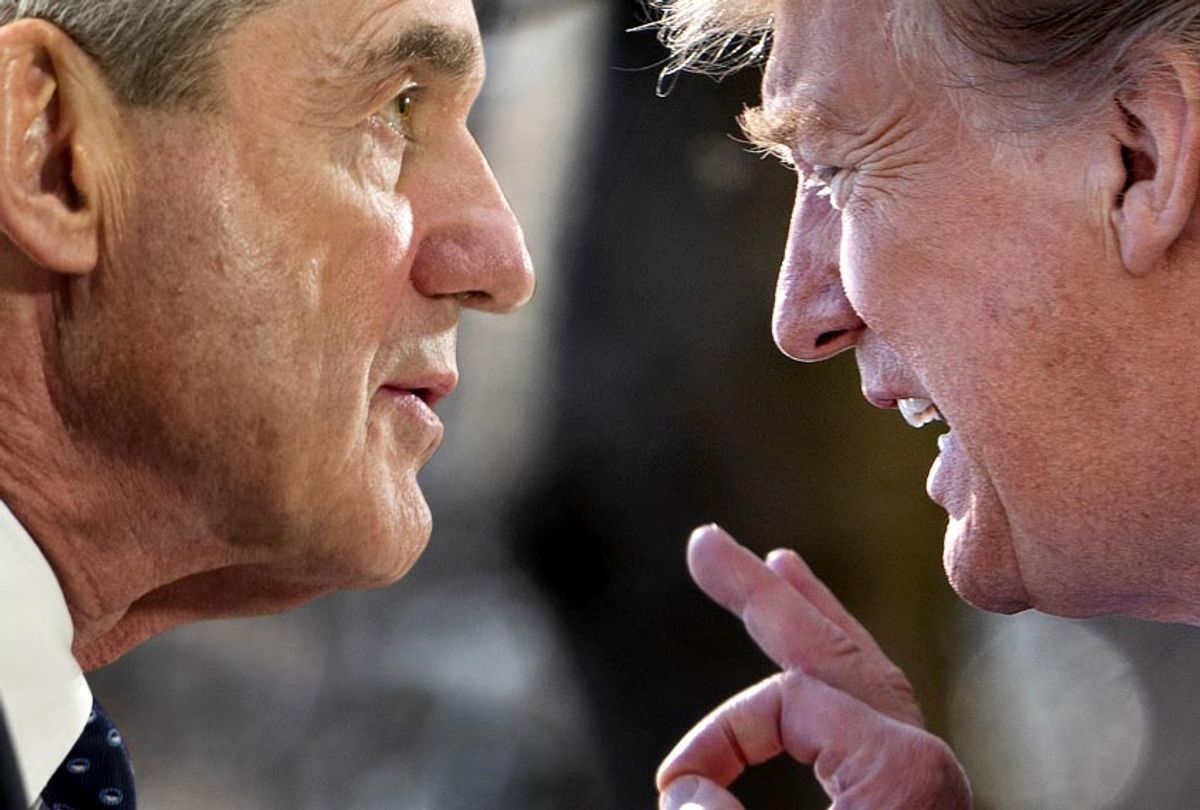Special Counsel Robert Mueller’s investigation is dead. But what it has uncovered is still very much a live matter.
While we wait for the release of a redacted version of Mueller’s report on Thursday, the office of the U.S. attorney in the District of Columbia filed a response Monday to the Washington Post’s request to unseal redacted documents in Paul Manafort’s case. Since Manafort was a key focus of Mueller’s team, and Mueller’s team has now concluded its work, it was reasonable to think much or all of the material that had been hidden in his case could now be revealed.
Not so, the government said. The reasons documents were redacted in Manafort’s case still apply, Assistant U.S. Attorney Jonathan Kravis argued. And the two main reasons information was redacted is that it relates to ongoing investigations or the privacy of uncharged individuals.
This is particularly intriguing in the case of the most vexing redaction of all — the discussion of Manafort’s 2016 meetings with Konstantin Kilimnik, a political operative with reported ties to Russian intelligence. One meeting featured president’s former campaign chair handing over polling data to Kilimnik related to the election — the closest thing we’ve seen to direct evidence of a formal Trump-Russia conspiracy.
In one partially redacted transcript discussing the matter, one of Mueller’s prosecutors said “what happened at that meeting is of significance to the special counsel.” He also said, “This goes, I think, very much to the heart of what the special counsel’s office is investigating.”
It’s possible that this information is redacted because it relates to the privacy of uncharged parties, but it seems more plausible that it is a part of an ongoing investigation.
However, this raises a more confusing question: If this piece of information goes “to the heart” of the special counsel’s investigation, and yet it is still being investigated, why did the special counsel close down?
It seems unlikely that Mueller would close up shop without feeling assured he got to the bottom of the issues that were central to his mandate. But it’s possible he sought to dissolve the special counsel’s office earlier than he otherwise would have because he realized he had a target on his back — and letting the other offices in the Justice Department handle whatever lines of inquiry are left over would be most prudent.
A related possibility is that, while Mueller concluded that there wasn’t enough evidence for a case of a conspiracy between Manafort and the Russian government in this instance, there are other angles and other investigations in which this information could play a role. At this point, it’s practically impossible to know what those other investigations could be.
And of course, there’s much more than this single piece of information that is redacted, and Kravis suggests that Mueller’s investigation has spurred many additional and ongoing probes.
“The Manafort case has been transferred from the Special Counsel’s Office to the U.S. Attorney’s Office, and the attorneys who were principally responsible for that case are no longer representing the government in this matter,” the filing said. “The redactions are intended to protect ongoing investigations that are being handled by various attorneys in various offices. It is unknown how long some of these investigations may remain ongoing.”
Kravis argued against a request from the Post to “promptly notify” the newspaper whenever the reasons for the redactions were no longer operative. However, he proposed that the court could set a fixed period of time after which the government will review the case again and re-examine the justifications for the redactions.


Shares